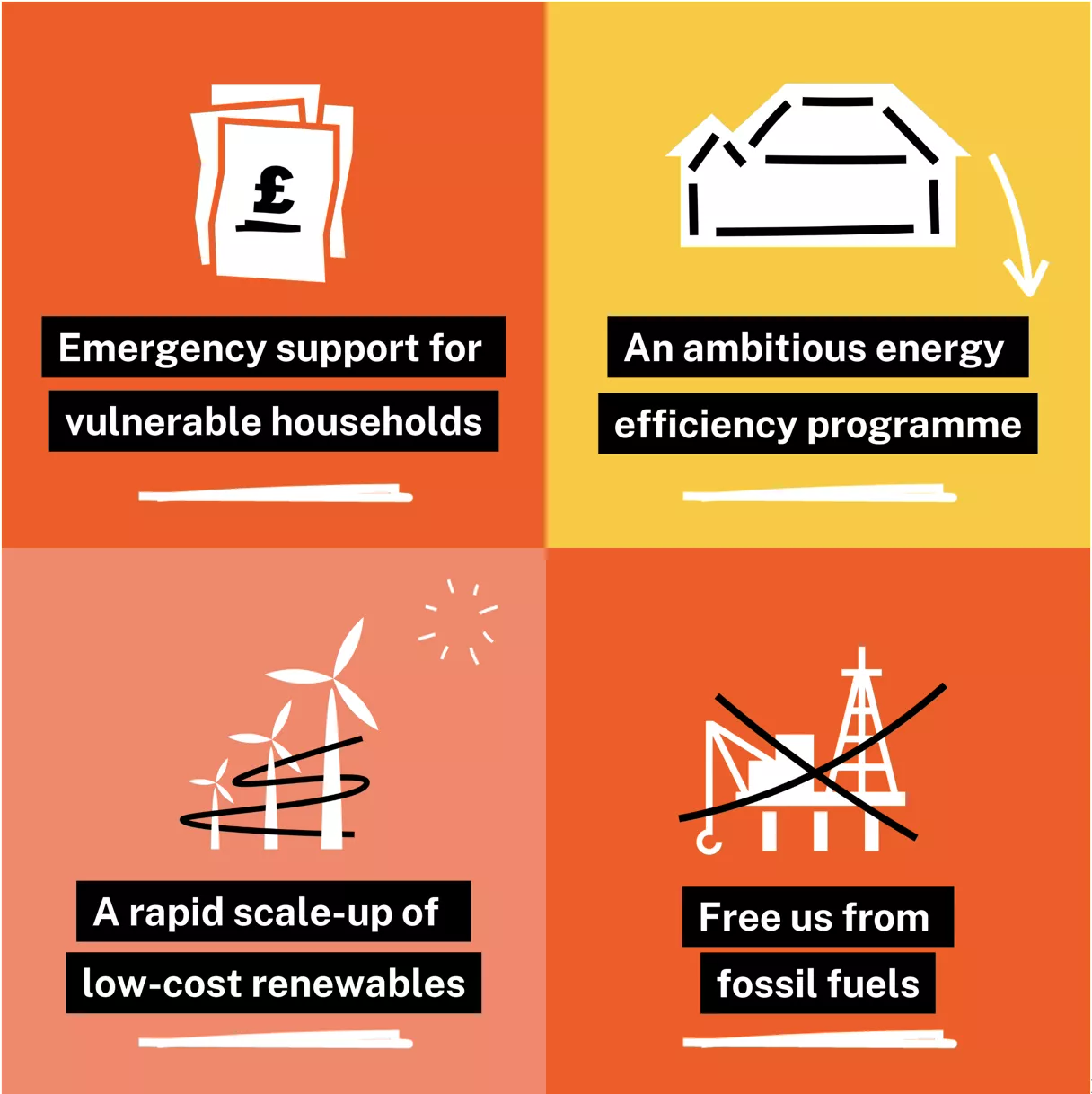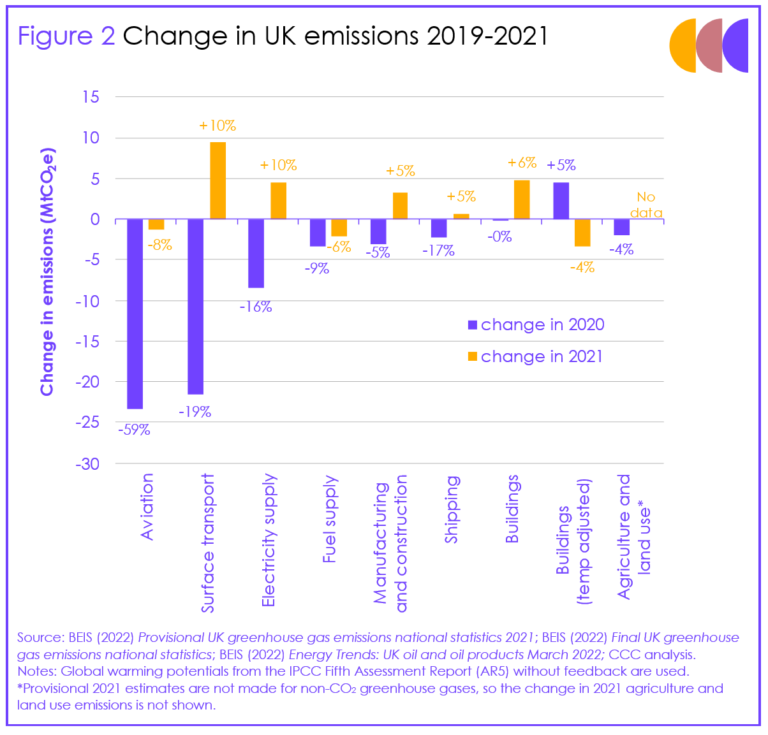Let’s show our leaders just how much we care
We’re sending our leaders a message - we want strong and meaningful commitments to protect the things we love, and to make a better future for us all. Find out about Climate Cymru.
shine a light films and resources
Watch our Shine a Light films about local energy generation and discover resources for further information
Gwyliwch ein ffilmiau Shine a Light am gynhyrchu ynni lleol a darganfyddwch adnoddau i gael rhagor o wybodaeth.
climate action updates
Climate Change Committee (CCC), UK Parliament
Progress in adapting to climate change: 2025 report to Parliament
Full report here
Executive summary
The increasing impacts of climate change are clear, both globally and in the UK. Adaptation is needed now to ensure that the UK is prepared for today’s extreme weather as well as the rapidly increasing severity of future risks. The costs of these impacts are already being felt, and the risks will continue to grow even if international targets to limit global warming are met. Action is needed now whilst we still have the opportunity to address these risks in a way that is both cost-effective and timely. This report assesses the extent to which the UK’s Third National Adaptation Programme (NAP3) and its implementation are preparing the UK for climate change. It is the Committee’s first statutory progress report on NAP3 and builds on our initial Independent Assessment of the Third National Adaptation Programme, published in March 2024. It is also the Committee’s first statutory progress report on NAP3 for the new UK Government.
The key messages of our assessment are:
The UK’s preparations for climate change are inadequate. Delivery of effective adaptation remains limited and, despite some progress, planning for adaptation continues to be piecemeal and disjointed. The vast majority of our assessment outcomes have the same low scores as in 2023. In terms of adaptation delivery, we do not find evidence to score a single outcome as ‘good’. Adaptation progress is either too slow, has stalled, or is heading in the wrong direction. Whilst there is some evidence of policies and plans improving, it is clear that NAP3 has been ineffective in driving the critical shift towards effective delivery of adaptation highlighted in our previous progress report in 2023.
The Government has yet to change the UK’s inadequate approach to tackling climate risks. The current government’s manifesto promised to ‘improve resilience and preparation across central government, local authorities, local communities, and emergency services’. It inherited a NAP that fell short of the task of preparing the UK for the climate change we are experiencing today, let alone that coming in the future. Our assessment finds little evidence of a change of course. The slow pace of change indicates that adaptation is not yet a top priority across government.
The Government must act without further delay to improve the national approach to climate resilience. A new approach is still possible. We recommend four key areas of action to raise the profile of adaptation across government and drive a more effective response to the UK’s changing climate.
Improve objectives and targets. This is the vital first step to provide an actionable and measurable framework for the rest of government and beyond. As part of this, the Government must communicate clearly the respective roles of government, the private sector and households in delivering and funding adaptation.
Improve coordination across government. Adaptation and climate risks are still only weakly integrated with wider government resilience efforts and other key policy agendas. Greater coordination across activities, spending decisions, sectors, and departments is required. Government adaptation efforts must be better linked with wider resilience planning to ensure that adaptation becomes a true cross-government priority.
Integrate adaptation into all relevant policies. The next Spending Review needs to ensure that climate adaptation planning is supported with sufficient resources across government. Public assets, and critical public services such as the NHS, need to be resilient to current and future weather so that they can operate effectively, and in the case of new infrastructure, without costly retrofitting. The Government’s policy agenda can help to close key policy gaps identified in this report, but only if climate resilience is adequately incorporated into their forthcoming strategies and plans.
Implement monitoring, evaluation and learning across all sectors. Adequate monitoring and evaluation, underpinned by regular data collection and reporting, is essential to track climate impacts and the effect of adaptation measures at a national level. It is also needed to ensure future planning learns from what is effective. The long-standing gap of an effective monitoring and evaluation framework for adaptation must finally be closed.
Summary of our assessment of progress in preparing for climate change (CCC)
Description: Of the 46 required outcomes, three have had good progress on policies and plans. We are unable to evaluate delivery progress for nine outcomes. For the remaining required outcomes, there has been mostly limited or insufficient progress across delivery and policies and plans.
Source: CCC analysis.
Notes: The number of required outcomes varies between outcome areas. There are eight required outcomes in land, nature and food, 16 in infrastructure, eight in built environment, two in health and wellbeing and nine in economy.
The climate crisis: 5 things to watch out for in 2025
https://news.un.org/en/story/2024/12/1158446
Historical events & reports
March 2023 Climate change: Is the UK on track to meet its targets? BBC Reality Check Team article
Oct 2022: The climate crisis poses a “significant and growing threat” to health in the UK, the country’s most senior public health expert has warned. (Guardian)
Climate Change Committee June 2022: 2022 progress Report to Parliament “This is a pivotal point in the UK’s journey to Net Zero. The UK is one of the few countries with emissions targets in line with the long-term temperature goal of the Paris Agreement. Policy ambition has moved substantially with the publication of the UK’s Net Zero Strategy. Now is the time to deliver the promised action.”
Key Messages 2022
The UK Government now has a solid Net Zero strategy in place, but important policy gaps remain.
Tangible progress is lagging the policy ambition. With an emissions path set for the UK and the Net Zero Strategy published, greater emphasis and focus must be placed on delivery.
Successful delivery of changes on the ground requires active management of delivery risks. Not all policies will deliver as planned. Some may be more successful than expected, while others will fall behind.
Action to address the rising cost of living should be aligned with Net Zero. There remains an urgent need for equivalent action to reduce demand for fossil fuels to reduce emissions and limit energy bills.
Slow progress on wider enablers. The Net Zero Strategy contained warm words on many of the cross-cutting enablers of the transition, but there has been little concrete progress.
The UK must build on a successful COP26. The UK presidency of the UN COP26 climate summit in Glasgow last November successfully strengthened long-term global ambition and introduced new mechanisms to support delivery. It should prioritise making those new mechanisms work in practice and strengthening global 2030 ambition, while preparing for a focus on climate finance and adaptation at COP27 in 2022 and COP28 in 2023.
Emissions rose 4% in 2021 compared with 2020 as the economy began to recover from the COVID-19 pandemic.
July 2021: Use the Climate Calculator to choose the climate policies you would like to see in place to help the UK hit its target for greenhouse gas emissions by 2030.
Existing policies are likely to get us half way from where we are now to where we need to be. The government knows more is needed – but what?
The Climate Calculator lets you answer this question, based on the impact of different policies, not just on emissions, but also on household budgets, jobs and health. These impacts are based on a mass of research – details on the site (we have not reported on every impact or alternative, only key ones).
2021 Progress Report to Parliament by the Climate Change Committee
Key Messages 2021
The Government has made historic climate promises in the past year, for which it deserves credit. However, it has been too slow to follow these with delivery. This defining year for the UK’s climate credentials has been marred by uncertainty and delay to a host of new climate strategies. Those that have emerged have too often missed the mark. With every month of inaction, it is harder for the UK to get on track.
Progress on Net Zero
Baroness Brown, Chair of the Adaptation Committee said:
“The severity of the risks we face must not be underestimated. These risks will not disappear as the world moves to Net Zero; many of them are already locked in. By better understanding and preparing for the coming changes, the UK can prosper, protecting its people, its economy, and its natural environment. A detailed, effective action plan that prepares the UK for climate change is now essential and needed urgently.”
https://www.theccc.org.uk/2021/06/16/uk-struggling-to-keep-pace-with-climate-change-impacts/
Lockdown measures led to a record decrease in UK emissions in 2020 of 13% from the previous year. Sustained reductions in emissions require sustained Government leadership, underpinned by a strong Net Zero Strategy:
A Net Zero Test would ensure that all Government policy, including planning decisions, is compatible with UK climate targets.
An ambitious Heat and Buildings Strategy, that works for consumers, is urgently needed.
Delayed plans on surface transport, aviation, hydrogen, biomass and food must be delivered.
Plans for the power sector, industrial decarbonisation, the North Sea, peat and energy from waste must be strengthened.
The big cross-cutting challenges of public engagement, fair funding and local delivery must be tackled.
Reducing emissions in Wales: progress report 2020 published march 2021.
Reducing emissions in Wales: Welsh Government response June 2021.





















